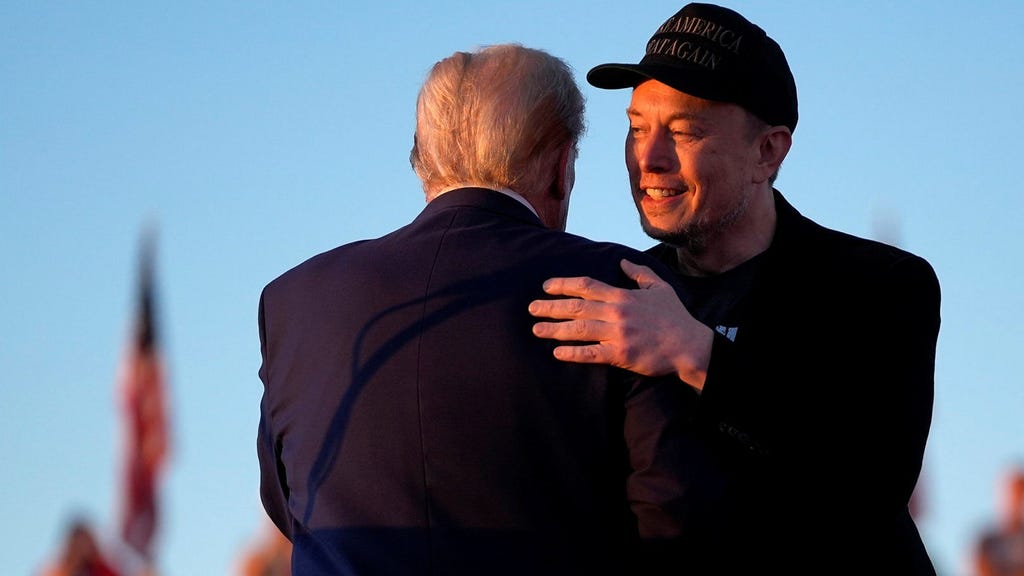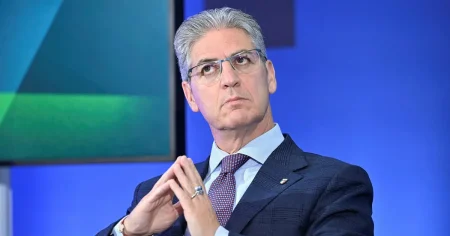The Rise of Elon Musk: A Tech Oligarch’s Dangerous Power Play
Elon Musk, the world’s richest man, graced the cover of The Economist in late November 2023, surrounded by his symbols of power: rockets, a Tesla Cybertruck, and the White House. His immense wealth, estimated at over $400 billion, is coupled with a concerning level of political influence, particularly his close relationship with the incoming US president. This “first buddy” status grants Musk unprecedented access to the levers of power, raising alarms about the potential consequences of his influence. The Economist highlighted the president-elect’s effusive praise of Musk during his victory speech, dedicating as much time to his "super genius" friend as to his presidential plans. This intertwining of economic, political, media, and informal power is a cause for deep concern, especially given Musk’s recent derisive attacks on European democracy. These actions suggest a willingness to wield his power in ways that threaten democratic institutions and norms.
A century ago, the threat to democracy emerged from the trenches of World War I, embodied by soldiers steeped in hatred and armed for violence. Today, the threat wears a different uniform. Four years prior, a mob, clad in sneakers and professing to defend democracy, stormed the US Capitol. The parallels between then and now are striking, despite the superficial differences. Today’s enemies of democracy may not wear uniforms or shout traditional slogans, but they are no less dangerous. They may be demagogues in suits and caps, or tech oligarchs like Musk, cloaked in the trappings of innovation and fueled by a dangerous mix of ambition and ideology.
Musk’s financial support for the incoming president’s campaign, estimated at $200 million, pales in comparison to his gains. The Economist reported a $300 billion surge in Tesla’s market value following the election, boosting Musk’s personal fortune by around $60 billion. This echoes the historical pattern of wealthy individuals using their resources to gain political influence, reminiscent of the 19th-century American "robber barons." Like railroad tycoon Jay Gould, who wielded immense power through political proxies, Musk’s wealth gives him the ability to shape policy and potentially undermine democratic processes. However, Musk’s open embrace of a divisive political figure raises questions about his motivations. A significant portion of Tesla’s target market views the incoming president negatively, potentially jeopardizing the brand’s image and sales. Why, then, would Musk so publicly align himself with such a controversial figure?
Beyond simple financial gain, Musk’s actions suggest a deeper ideological drive. His support for far-right figures and parties in Europe, his attacks on democratic institutions, and his embrace of conspiracy theories all point to a broader agenda. This activism actively harms the Tesla brand, alienating potential customers and raising concerns about the company’s future. What underlying beliefs drive this seemingly self-destructive behavior? A possible explanation lies in the concept of "tech utopianism," the belief that technology can usher in a perfect future, unfettered by regulations and traditional societal structures. Musk’s actions suggest a belief that he, as a technological innovator, is uniquely positioned to deliver this utopian future, even if it means dismantling existing democratic institutions.
This utopian vision, coupled with a disdain for "the system," aligns Musk with the incoming president’s base. However, their visions of the future diverge. While Musk dreams of a Martian paradise, his political allies yearn for a romanticized past. This fundamental disconnect could lead to future conflict and a potential falling out between Musk and his chosen political allies. Historical precedent, as seen in the story of Thomas Cromwell, demonstrates the precarious position of even the most favored advisors. However, unlike Cromwell, Musk possesses vast wealth and control over powerful algorithms, giving him a level of influence that transcends traditional political patronage.
Elon Musk is not merely a wealthy businessman; he is a powerful force shaping the political and technological landscape. His actions raise fundamental questions about the role of wealth and technology in a democratic society. While he may not yet be the Jay Gould of the AI era, the path is laid, and the potential consequences are significant. His embrace of extremist ideologies, his attacks on democratic institutions, and his unwavering belief in his own vision of the future all point to a dangerous concentration of power in the hands of a single individual. The world must pay close attention to Musk’s actions and consider the long-term implications of his growing influence. His pursuit of a technologically driven utopia may come at the cost of the very democratic principles that underpin a free and just society.














